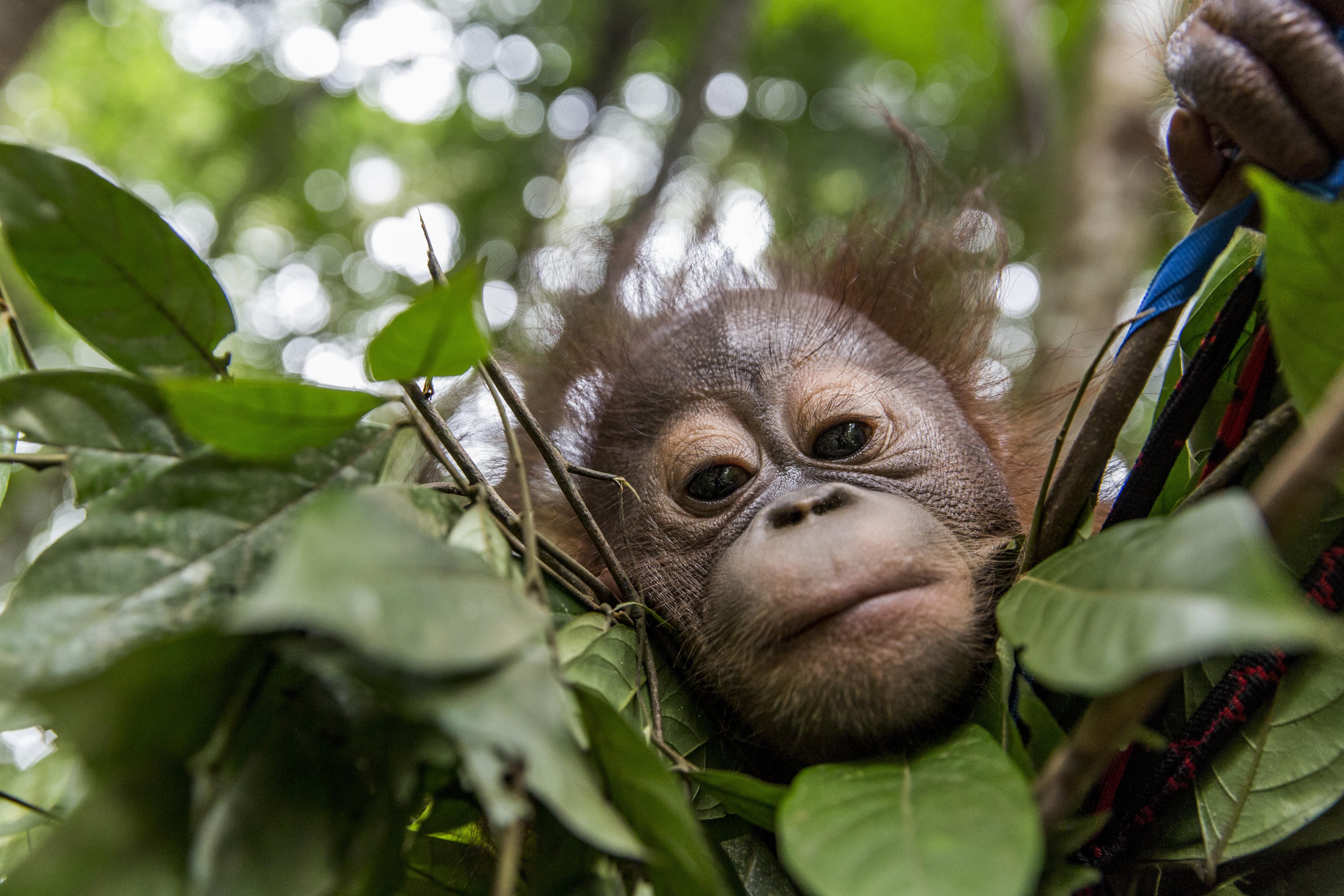
FOUR PAWS helps oRANGUTAN orphans
Program for reintroduction into the wild launched on Borneo
Orangutans are massively threatened by extinction through deforestation and shrinking habitat. This is why the serene apes with their reddish hair have already been on the International Union for Conservation of Nature (IUCN) Red List for years, and the number one reason why their numbers continue to decline.

Land grabbing destroys the habitat of orangutans
The forest is the orangutan’s home, yet human activities are shrinking their world at an alarming rate. Between 1972 and 2015 around 10 million hectares of the Borneo orangutan’s habitat was destroyed, leaving just under half of their original distribution area. The main culprits of this are unsustainable practices such as oil palm monocultures, mining, and clear-felling logging; industries which are showing no signs of slowing down despite their irreversible impact on the planet and its wildlife.
The Indonesian government assigns protected areas of forest in which these activities are forbidden, and this serves to secure the remaining orangutan habitat. However, 75% of orangutans on Borneo live outside of these protected areas. This means that the orangutan population is plummeting daily, with an estimated 100,000 Bornean orangutans lost between 1999 and 2015 (an average of 17 a day!). Because orangutans only give birth once every 6-8 years, each loss can have devastating effects for generations to come.
As their habitat shrinks, orangutans struggle to find food, as they would typically roam long distances in search of seasonal fruit. The lack of available food means that they often ‘trespass’ on human settlements which have encroached upon their habitat. This leads to conflict with locals and being killed to protect crops.
It is difficult to estimate just how many orangutans die as a result of these interactions, but one study estimates that between 1,950 and 3,100 are killed every year in Kalimantan (Indonesian Borneo) alone.
The Loss of a Mother
As a result of their shrinking habitat, orangutan mothers are increasingly confronted by human beings. Many apes do not survive these encounters, and their children become orphans. This makes their prospect of survival very slim, as orangutans rely on their mothers – for protection, comfort and to show them how to thrive in the jungle.
Like humans, and other great apes, most orangutan behaviours are not innate; they are learned. This means they need years of guidance before they can build a sturdy nest to sleep in the treetops; before they have the skills to identify and evade predators; and before they can be sure that the fruit they choose to eat is delicious and juicy, and not poisonous; and how to use tools to crack open succulent fruity pulps hidden behind rock-hard shells. Given that some 15,000 plant species exist on Borneo, it should come as no surprise that the loss of a mother leaves orangutan babies feeling terrified and helpless.

The ORANGUTAN FOREST SCHOOL
It is when they are very small that close contact to an attachment figure is especially important. Like human children, the baby orphans and youngsters need a mother. Because their own mother can no longer take on this role, they have a team of human substitute mothers who lovingly take care of the little ones.
At the same time, contact with other orangutan children is crucial for their development. They enable the young apes to lead a normal life in the rainforest, with one exception – their mother is a human. Every day they spend most of the day with members of the same species in the forest. They learn by imitation from their substitute mothers as well as from other apes. Their real mothers would teach them in a similar way. This freedom allows them to prepare the amimals in the best possible way for life in the rainforest. The older they become, the more their substitute mothers and fathers let them go and allow them to independently discover the forest for themselves.






